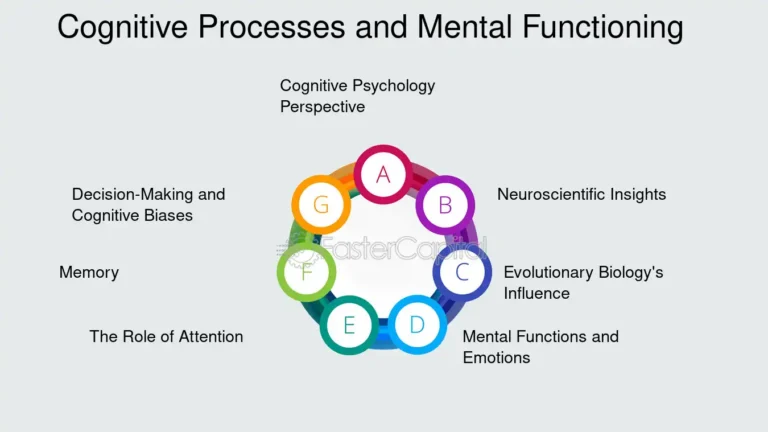
sociological concepts
Sociology is the scientific study of society, social relationships, and patterns of behavior among individuals within a group. It provides a framework for understanding how humans interact with each other, how institutions shape behavior, and how cultures develop. At the heart of sociology are sociological concepts—key ideas and terms that help scholars interpret the complexities of human social life. These concepts not only serve academic purposes but also help people reflect on real-world issues such as inequality, education, religion, politics, and the economy. In this article, we will explore the most essential sociological concepts, their definitions, and how they apply to everyday life.
What Are Sociological Concepts?
Sociological concepts are the building blocks of sociological thinking. They are abstract ideas used to categorize and explain the patterns observed in human behavior and social structures. These include terms like norms, values, roles, institutions, socialization, and status. Sociologists use these concepts to frame their questions, collect data, and analyze the social world. For instance, when studying a particular community, a sociologist may look at the group’s cultural norms, how roles are assigned within families, or how social institutions like schools and churches function within that context. These concepts allow for systematic and critical thinking about society, making it possible to understand not just what people do, but why they do it.
The Importance of Sociological Thinking
Understanding sociological concepts is essential for critical thinking in society. It helps individuals think beyond the surface and question the reasons behind social behaviors, structures, and systems. Sociological thinking encourages the exploration of issues like inequality, discrimination, or power dynamics, thus promoting a deeper understanding of the world around us. By examining these concepts, individuals can better understand how society influences behavior and how people, in turn, influence society.
Key Sociological Concepts
Sociology encompasses many important concepts, each offering unique insight into society and human behavior. Below are some of the most fundamental sociological concepts:
1. Socialization
Socialization is the process through which individuals learn and internalize the values, beliefs, and norms of their society or social group. This process begins at birth and continues throughout a person’s life. Family, peers, schools, media, and religious institutions all play significant roles in socializing individuals. Socialization helps people understand their roles in society and how to interact with others, forming the foundation of social relationships.
Socialization influences everything from how we communicate to how we perceive right and wrong. For example, children learn acceptable behavior by observing their parents and peers, while adults reinforce norms and values within their communities. This process helps perpetuate societal norms and ensures social cohesion.
2. Norms and Values
Norms are the unwritten rules of society that guide behavior and establish what is considered acceptable or unacceptable. They include everything from table manners to rules about personal space, to the expectations for how people should behave in various social contexts. Values, on the other hand, are the beliefs and ideals that people hold dear and consider important, such as fairness, justice, and respect for human life.
Norms and values often go hand in hand. Norms help enforce the values that society deems important. For example, the norm of not cutting in line reflects the value of fairness and respect for others. Norms can vary across different cultures or even subcultures within the same society, as they are shaped by societal values and historical contexts.
3. Status and Role
Status refers to an individual’s social position within a given society, while role refers to the expectations and behaviors associated with that status. A person may hold multiple statuses (e.g., being a student, a parent, or a professional), and each of these statuses carries its own set of roles. For example, as a student, a person is expected to attend class, study, and complete assignments, while as a parent, they are expected to care for their children and provide guidance.
Social roles can be complex, as people often play multiple roles simultaneously. Conflicts can arise when the expectations of these roles clash with one another, leading to role strain or role conflict. For example, a working mother may experience role conflict between the demands of her job and the expectations of her role as a caregiver.
4. Social Institutions
Social institutions are structures in society that govern the behavior of individuals and groups. They include systems like family, education, government, religion, and the economy. Each institution serves a specific function and helps maintain social order. For example, the education system provides individuals with knowledge and skills, while the family functions as a primary social unit that supports emotional and social development.
Social institutions provide individuals with frameworks within which they can live, interact, and fulfill their roles. These institutions also shape people’s values, norms, and behaviors, as they help to define the expectations and rules of society.
5. Power and Authority
Power is the ability to influence or control the behavior of others, while authority refers to the legitimate or socially approved use of power. Power can exist at various levels, from individual relationships to societal structures, and it is often distributed unevenly. People in positions of power can shape policies, institutions, and cultural norms. Authority, however, is power that is seen as rightful or accepted by society. For example, government officials have authority because their power is based on legal and societal recognition.
The study of power and authority is crucial in understanding social inequality and conflict. Sociologists explore how power dynamics operate in different contexts, such as within the family, the workplace, or the broader political system.
6. Social Stratification
Social stratification refers to the hierarchical arrangement of individuals or groups in society based on factors such as wealth, income, education, and occupation. Stratification leads to inequality, as certain groups have access to more resources and opportunities than others. These divisions can be based on class, race, ethnicity, gender, or other factors.
Social stratification is a significant focus in sociology because it shapes people’s life chances, opportunities, and experiences. Sociologists study how social hierarchies are maintained and how they impact individuals and communities. For example, research on class stratification explores how economic inequalities affect access to education, healthcare, and employment opportunities.
The Role of Sociology in Understanding Society
The study of sociological concepts is essential for understanding the social structures and relationships that shape our lives. It provides insight into how societal forces like culture, politics, and economics affect individual and collective behavior. By applying sociological theories and concepts, individuals can better understand the complexities of human social life and gain the tools to address social issues like inequality, injustice, and discrimination.
Sociology also encourages a critical examination of social systems and institutions, allowing individuals to question the status quo and advocate for social change. Whether it’s through understanding power dynamics, social inequality, or cultural differences, sociology helps people to develop a deeper awareness of the world around them.
Sociology is the scientific study of society, social relationships, and patterns of behavior among individuals within a group. It provides a framework for understan
Sociological concepts offer valuable tools for understanding human behavior, social structures, and institutions. By exploring ideas such as socialization, norms, status, roles, and social stratification, we can gain a deeper understanding of the world we live in. Sociology not only helps us comprehend how society functions but also provides us with the tools to challenge injustices and contribute to social change. Understanding these key concepts equips us to better navigate the complexities of modern society and work towards a more equitable and just world.





